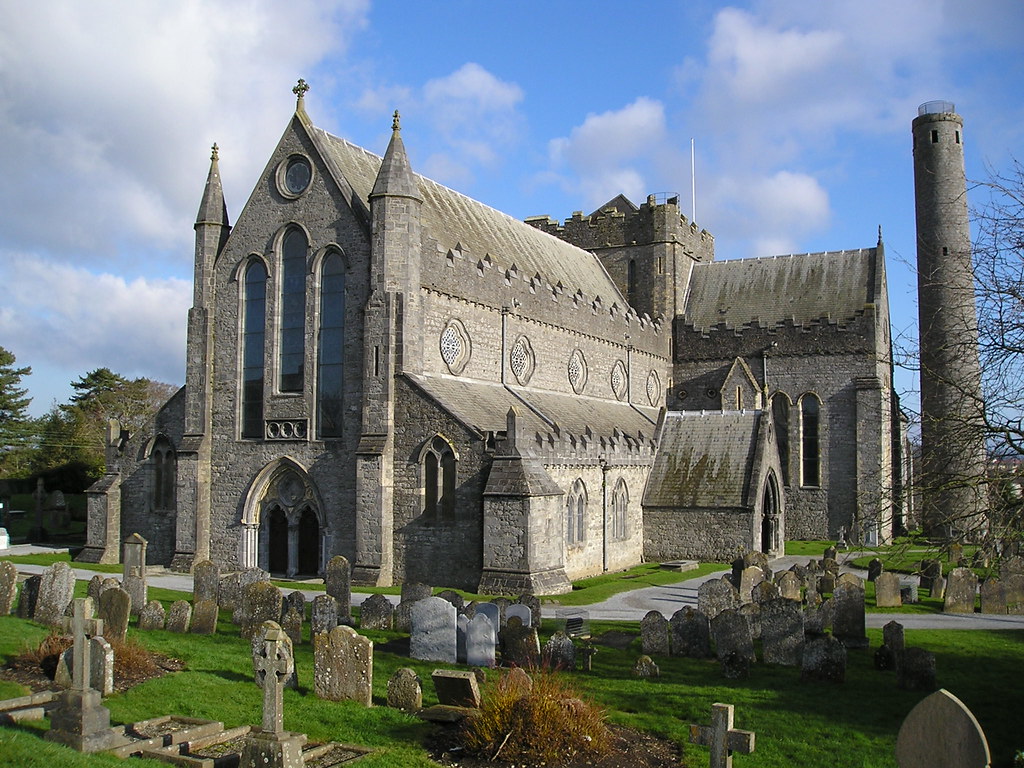
| |
| |
| |
 |
Kilkenny Ireland, 1324 -
Dame Alice le Kyteler was accused and convicted in one of the earliest witchcraft cases, and sentenced to burn at the stake. She got away and slipped out of history.
Kyteler was a powerful woman. Her father had been a wealthy merchant of Anglo-Norman descent. Alice herself was rich and well-connected. She also had powerful enemies. She apparently learned about money-lending from her first husband, and a lot of people owed her money.
That first husband died — as did three others. The final husband had three children whom she disinherited, which made her the sole beneficiary of his estate. When he contracted a mysterious wasting disease, he and the children began to suspect Alice. Whether she was involved in the deaths of her husbands was cause for speculation. With doctors unable to name the current husband's disease; and with his offspring bereft of their financial heritage.... they and he accused Alice of witchcraft.
The story goes that the husband and children went to Alice's seaside home and found "terrible items" implicating her in the practice of dark arts. The details in various accounts expand to a catalogue of gruesome and sacrilegious pieces of evidence: body parts of an unbaptized infant; evil powders; communion wafers imprinted with satanic images; the fingernails and toenails of corpses boiled in the skull of a robber; candles made of human fat. The family brought the terrible items to the Bishop of Ossory, goes the story.
Witchcraft was a rather new obsession in the Catholic Church, which was the dominating institution. Alice's enemies insisted that she was a witch — but she had friends. The Lord Chancellor of Ireland was her brother-in-law. Her son William, dear to her, was a friend of the treasurer. She had enough power that when Bishop Ledrede came to investigate her, she had him imprisoned in the castle.
The Dean of St. Patrick's cathedral in Dublin was outraged, and Bishop Ledrede came out of 17 days in jail with a renewed interest in the prosecution of Ms. Kyteler. The result was a conviction — of Alice, her son William, and ten others.
Alice's maid Petronilla died by burning, after a severe beating. William was sentenced to hear mass three times daily for a year, to feed some people, and to reroof Saint Canice's cathedral — a job that he did poorly. The other nine took their place amongst forgotten bit-players in history.
And Alice disappeared. Her fate is unknown.